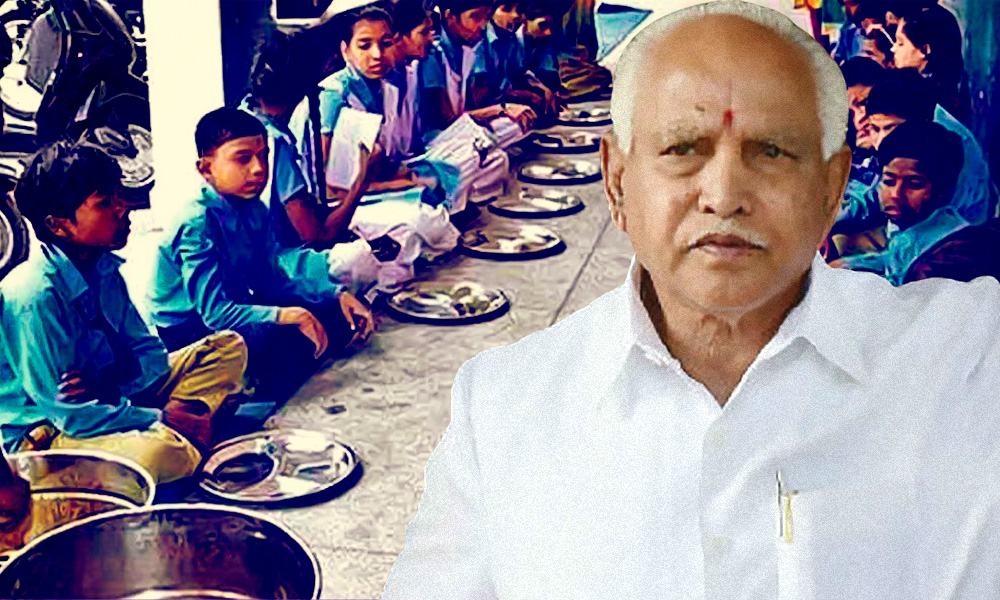
Image Credits: Patrika, The Times of India
Mid-Day Meal Scheme: Experts Flag Karnataka Govt's Inaction For Rising Cases Of Child Malnutrition
Writer: Palak Agrawal
Palak a journalism graduate believes in simplifying the complicated and writing about the extraordinary lives of ordinary people. She calls herself a " hodophile" or in layman words- a person who loves to travel.
Karnataka, 23 Dec 2020 11:02 AM GMT | Updated 23 Dec 2020 11:58 AM GMT
Editor : Prateek Gautam |
A free soul who believes that journalism, apart from politics, should stand for social cause and the environment.
Creatives : Rajath
A free spirit who find meaning in life with the virtue of creativity and doing job par its excellence, animal lover and traveller by heart.
In 2020, between the months of April and October, the number of children suffering from malnutrition was 9,478. There was a spike of 58% in children suffering from nutrition-deficiency per month during the period of April to October.
The Karnataka government is relooking at its decision to reopen schools and colleges amid surging cases of a new strain of coronavirus. But the public health experts in the state have already flagged signs of malnutrition and related ailments due to a pre-longed halt in the Mid Day Meal Scheme owing to the COVID-19 lockdown.
The News Minute reported on the data which highlights a massive increase in malnutrition among children aged below six years and it pointed out that the rate majorly spiked between April and October, this year.
In 2019, the total number of children suffering from malnutrition for 12 months was 9,544, according to the Department of Women and Child Welfare.
However, in 2020, between the months of April and October, the number of children suffering from nutrition-deficiency was 9,478. There was a spike of 58% in children suffering from malnutrition per month during the period of April to October.
The report mentioned that the data was collected from 62,580 anganwadis serving over 35 lakh children in the state.
When the COVID-induced lockdown was announced, schools and educational institutions were shut but the central government had instructed the states to provide dry ration kits to families of the children enrolled in such government-run schools. However, there was a crucial five-month delay in carrying out the distribution drive which points to the laxity in the government's efforts.
This five-month suspension of the supply of dry ration/ food grains occurred at a time when the marginalised communities were facing the brunt of a pandemic and proper nutrition was paramount for survival. This has led to lakhs of children suffering stunted growth.
"They came to give us ration after two months. When we asked them, the anganwadi workers said that there were delays in getting funds from the government for the ration. This anganwadi worker had brought us food by paying for it herself. What else can we do? We got rice and dal. My children are four and six years old and have been eating one meal a day for most days of the month," a mother of two children in Belgaavi told the publication.
Reports have specified that there was a substantial delay in the procuring the ration since the state government did not release funds on-time.
Siddharth Joshi, an independent researcher and Right To Food activist, has been vocal about the cause of distributing ration kits effectively stated that the primary reason for the delay in disbursement of ration kits is that the state government was not providing money to clear bills on time.
Also Read: Madhya Pradesh Govt Plans Sanskrit Only Play Schools To Promote Language, Tradition
 All section
All section














